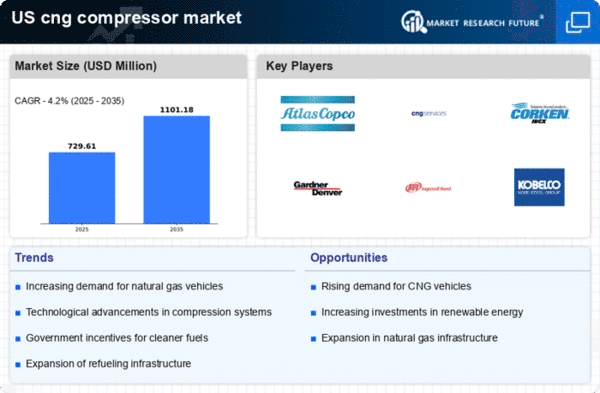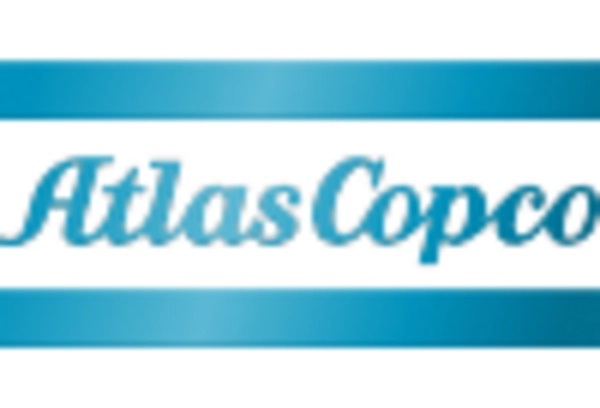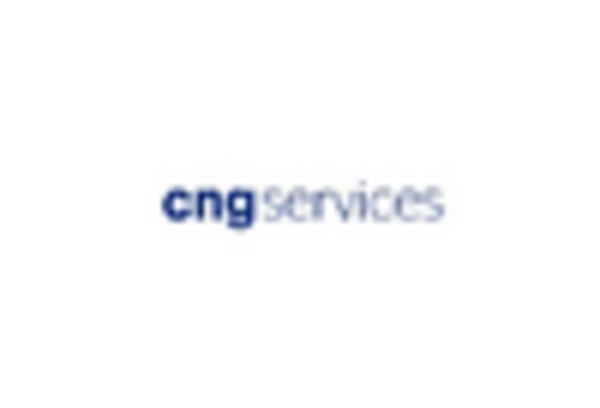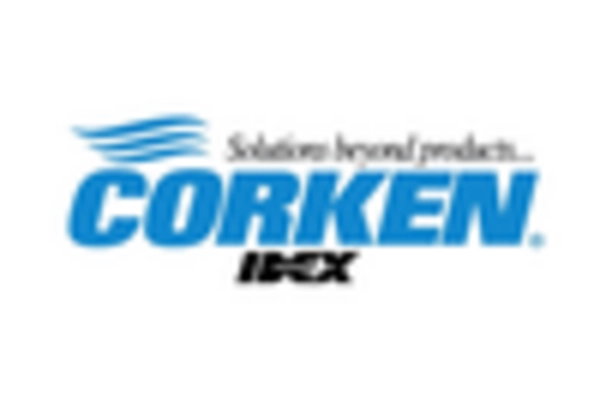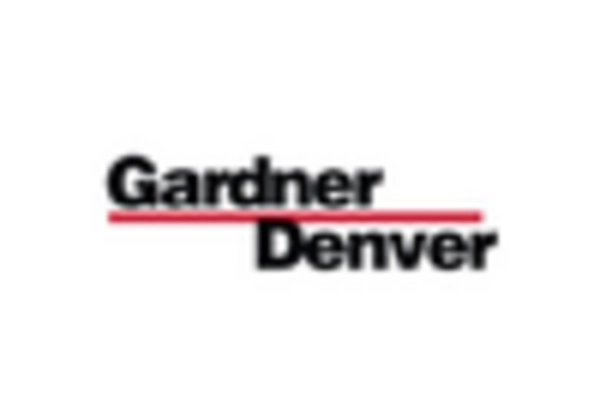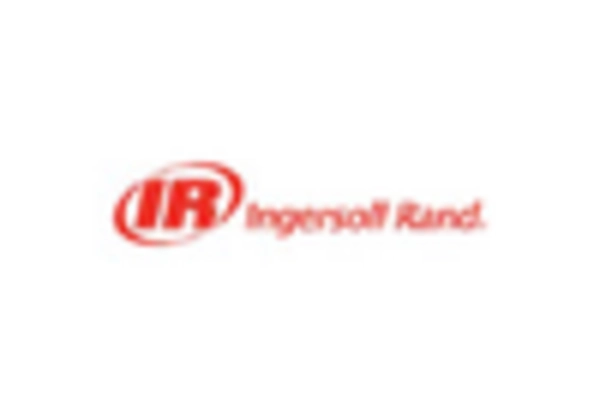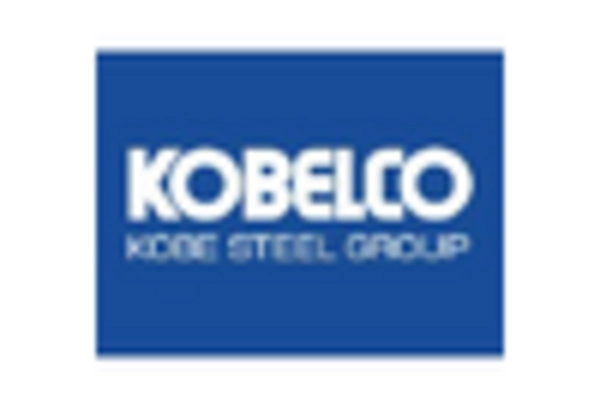Economic Viability of CNG
The economic advantages associated with CNG are a significant driver for the cng compressor market. CNG is often more cost-effective than traditional fuels, with prices fluctuating around $2.50 per gasoline gallon equivalent (GGE) in the US. This price point makes CNG an attractive option for fleet operators and individual consumers alike. The cng compressor market is likely to see increased investment as businesses recognize the potential for cost savings. Additionally, the lower operating costs of CNG vehicles compared to gasoline or diesel counterparts further incentivize adoption. As the market matures, the economic viability of CNG is expected to bolster the demand for compressors, facilitating the growth of the industry.
Expansion of CNG Infrastructure
The expansion of CNG infrastructure is a vital driver for the cng compressor market. As more refueling stations are established across the US, the accessibility of CNG increases, encouraging more consumers and businesses to adopt this cleaner fuel. Recent reports indicate that the number of CNG refueling stations has grown by over 20% in the past few years, reflecting a commitment to enhancing infrastructure. The cng compressor market stands to gain significantly from this trend, as the demand for compressors will rise in tandem with the expansion of refueling networks. This infrastructure development not only supports existing CNG users but also attracts new customers, further propelling market growth.
Government Incentives and Subsidies
Government incentives and subsidies play a crucial role in driving the cng compressor market. Various federal and state programs are designed to encourage the adoption of CNG as a cleaner fuel alternative. For instance, tax credits and grants for CNG infrastructure development have been implemented, which can significantly reduce the financial burden on businesses looking to invest in cng compressors. The cng compressor market is likely to experience growth as these incentives make it more feasible for companies to transition to CNG. Furthermore, the alignment of these incentives with broader environmental goals suggests a sustained commitment to promoting CNG, thereby enhancing market prospects.
Rising Demand for Clean Energy Solutions
The increasing emphasis on clean energy solutions is a pivotal driver for the cng compressor market. As environmental concerns escalate, the shift towards cleaner fuels like compressed natural gas (CNG) becomes more pronounced. In the US, the demand for CNG as a transportation fuel has surged, with a reported growth of approximately 15% in recent years. This trend is likely to continue as consumers and businesses seek to reduce their carbon footprints. The cng compressor market is poised to benefit from this shift, as more refueling stations and infrastructure are developed to support CNG vehicles. Furthermore, the transition to CNG aligns with federal and state initiatives aimed at promoting sustainable energy practices, thereby enhancing the market's growth potential.
Technological Innovations in Compression Technology
Technological innovations in compression technology are transforming the cng compressor market. Advances in compressor design and efficiency are enabling faster refueling times and improved reliability. For instance, the introduction of high-pressure compressors has enhanced the ability to compress CNG more efficiently, which is crucial for meeting the growing demand. The cng compressor market is likely to benefit from these innovations, as they not only improve operational efficiency but also reduce maintenance costs. As manufacturers continue to invest in research and development, the market is expected to see a wave of new products that cater to the evolving needs of consumers and businesses alike.


